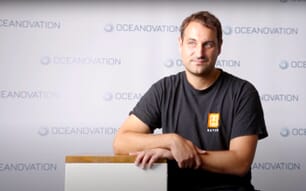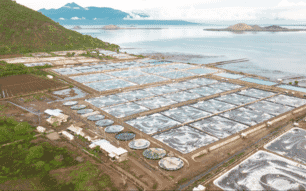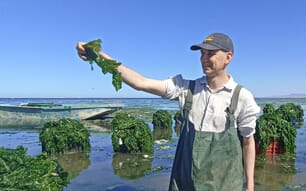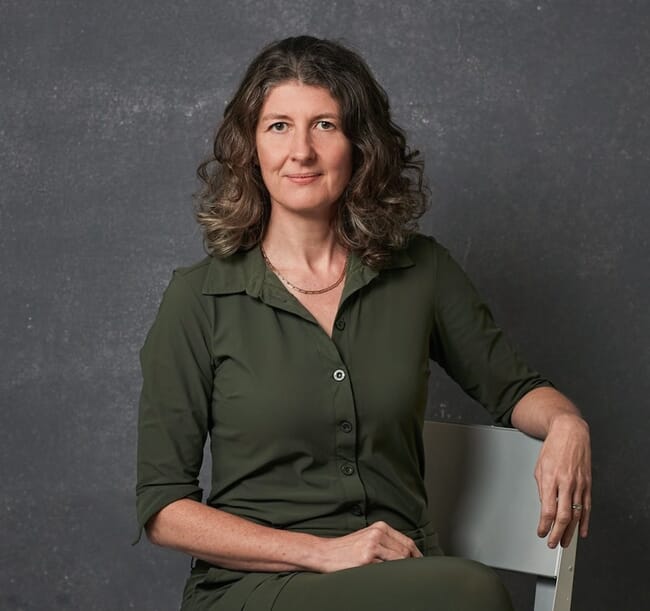
Unsurprisingly, one of the highlights for Aqua-Spark since Smit joined in September 2022 – indeed one of the biggest stories to have so far emerged about aquaculture startups – was eFishery’s $200 million Series D fundraising round. The startup has developed a platform that gives smallholder farmers access to feed and financing and the round increased the company’s valuation to an astonishing $1.4 billion.
“It really shows that you can build a successful company with the right technology platform and they’re the first aquaculture startup to exceed the $1 billion valuation. It’s good for them and also good for the industry, as it shows you can have an impact story that also gets investment results. That combination is really great. In my previous role at Rabobank I financed a lot of companies and know how difficult it is for smallholders to get access to financing, especially for innovative and more sustainable practices,” Smit reflects.
eFishery’s high profile success has also helped to initiate discussions with a much wider range of investors and startups.
“It’s woken up a whole different pocket of investors, especially who like to invest in companies that are already profitably and that also have impact – it’s an easier segment to raise money,” notes Smit.
“It also helps on the opportunity side, as other companies see the value of being part of our ecosystem since we’ve been able to help eFishery grow,” she adds.
The success – both in terms of finances and impact – of eFishery has helped to convince Smit of the value of such platforms, and this year has seen Aqua-Spark invest in two other companies that could emulate eFishery’s success.
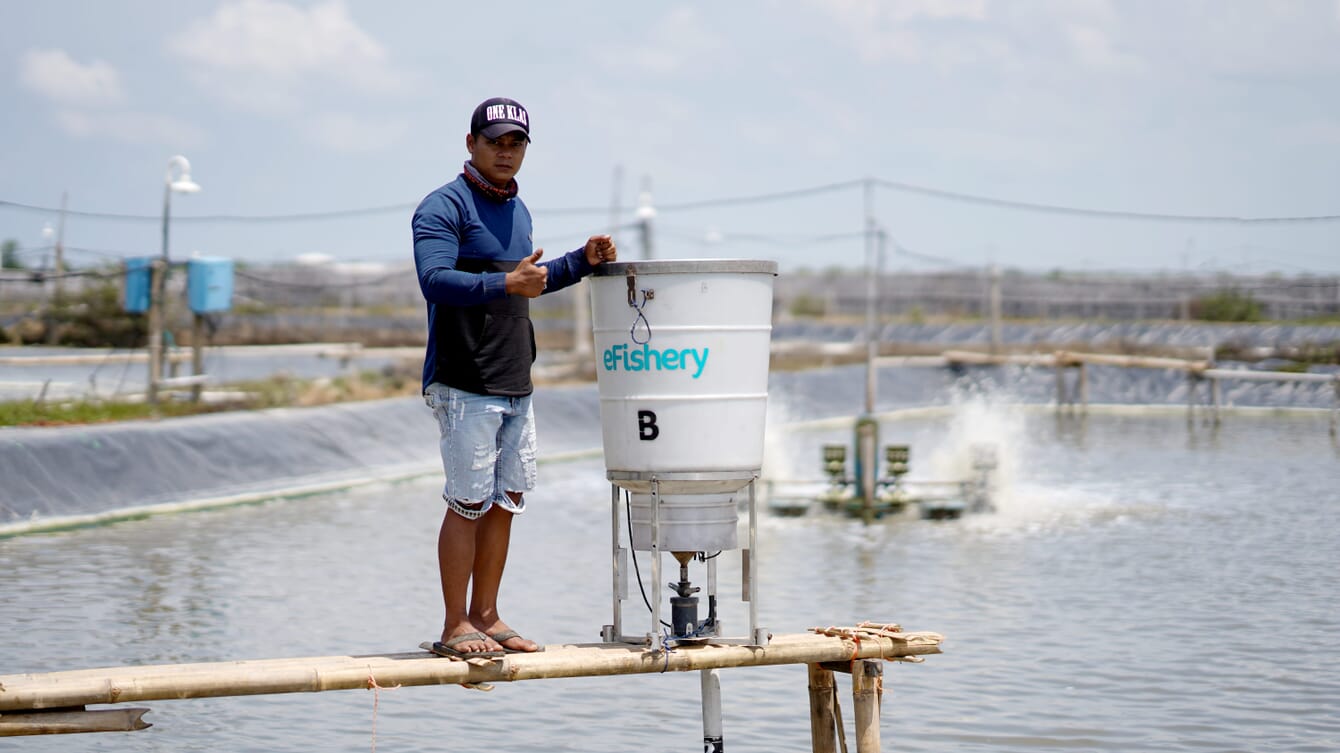
eFishery became the first aquaculture startup to exceed the $1 billion valuation following the startup's $200 million Series D fundraising round
The first was Tepbac, a Vietnamese media company that diversified into the provision of hardware and a data platform to help the country’s shrimp farmers improve their productivity and sustainability. More recently they have invested in Aquarech – a Kenyan company that’s developing a digital platform, which includes a farm management tool to help farmers monitor conditions in their ponds and cages, as well as a marketplace that connects them to fish traders and feed suppliers.
“There are a lot of analogues to how eFishery started, and they also provide farmers with access to feed and a marketplace – we really see how this model, especially for startups and entrepreneurs that are well connected to local communities, can work,” Smit explains.
“Gibran [founder and CEO of eFishery] used to own his own fish ponds, Tepbac has established connections with local farmers and Aquarech is deeply connected to the local community. If you look at tech adoption the real challenge is making sure people start using it. And it doesn’t need to be very complex technology, quite simple technology can make a huge difference in terms of feed usage, for example. The success for us is finding companies that can really connect to the local communities and then through the use of data and technology find a way to leverage it and make a community co-operative and use the buying power to purchase feed and get access to finance. It’s a model that really helps smallholder farmers connect to a bigger platform,” she adds.
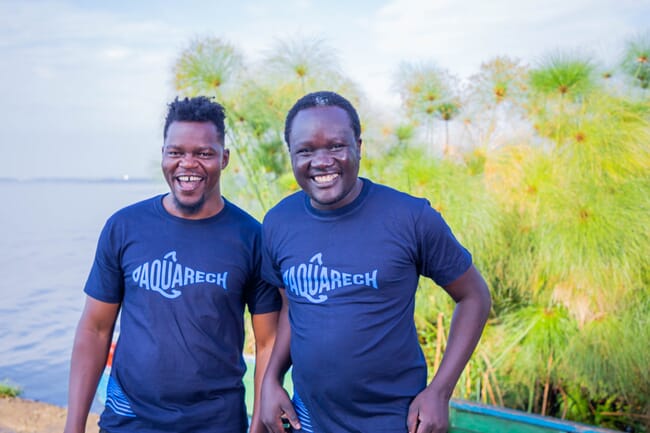
Following the success of eFishery and its community connection, Aqua-Spark recently invested in Aquarech – a Kenyan aquatech startup deeply connected to the local community
Smit is hopeful that investing in African companies, like Aquarech, can really help the continent.
“The population in Africa is still rapidly growing and there’s a lot of need for good healthy protein and we feel that aquaculture can make a big contribution there. We have already invested in three farms in Africa – Lake Harvest, Chicoa and IOT [Indian Ocean Trepang] – but Aquarech is our first investment in an African aquatech company,” Smit reflects.
“We’re in the process of launching our Africa fund, which will give us more firepower to work on the African continent and we’re working really closely with partners like Rockefeller, Gatsby and the World Bank to build infrastructure and also finance smallholder farmers and small entrepreneurs,” she adds.
Critical mass for alternative feeds?
Smit has also been heartened by the growth in production of – and demand for – alternative aquafeed ingredients in the course of the last 12 months. It’s a field that Aqua-Spark has long championed, and made a number of investments in, over the last decade.
As she notes, one recent highlight of the year has been the partnership between America’s largest food manufacturer, Tyson, and Protix – a Dutch-based insect protein producer that Aqua-Spark is the largest investor in.
As well as suggesting the mainstream momentum behind alternative proteins, it’s also a deal that’s close to Smit’s heart – she previously worked for Rabobank, who also invested in Protix, which is how she first encountered Aqua-Spark.
“It was then that I discovered how aquaculture is a field that’s underinvested and there’s a lot of opportunities there to make a difference, which is what attracted me [to the CEO role],” Smit explains.
In terms of alternative feed ingredients this year saw Aqua-Spark also invest in Enifer – a Finnish startup producing single-cell protein called Pekilo from waste from the wood pulp sector.
“Research recently published by the Norwegian University of Life Sciences shows that it [Pekilo] is really good for the immune systems of salmon and that salmon really like the taste. Enifer are much more early stage than Protix, but we see a lot of opportunities as they move from proof-of-concept to building a large scale production facility. This is an area where there’s a huge capital need and that’s where we like to come in and play,” Smit reflects.
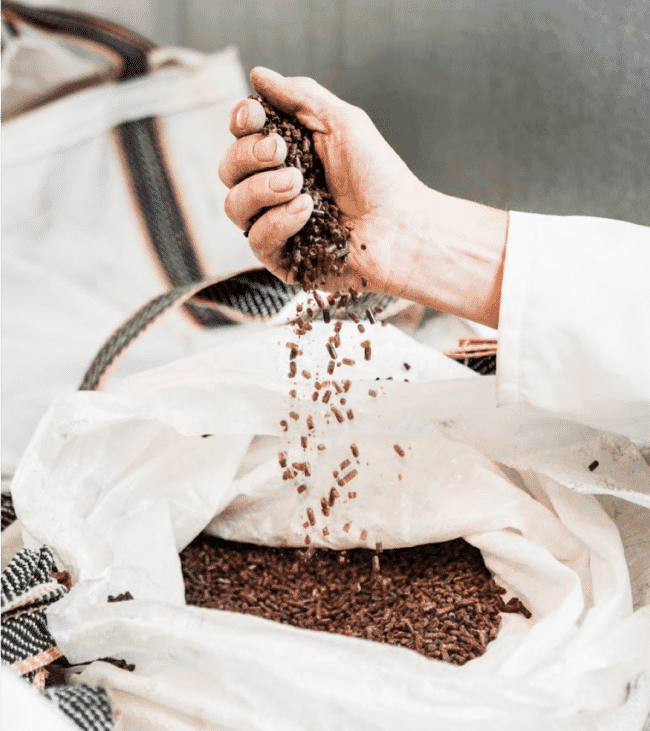
© Calysta
The year has also seen a major milestone for the fund’s first alt-feed protein investment, with Calysta securing FDA approval of FeedKind protein, with large-scale production from their 20,000 tonne factory in China underway.
“There’s huge demand and they have secured their first contracts. The increased cost of [conventional] feeds has proven that FeedKind can be competitive as an alternative [to fishmeal],” Smit notes.
One other investment made by Aqua-Spark in the last 12 months has been in Israeli startup Wanda Fish Technologies, which is working on the cultivation of bluefin tuna from cells.
“It’s a species that we know is challenging to sustainably farm, so it’s an exciting alternative,” Smit explains.
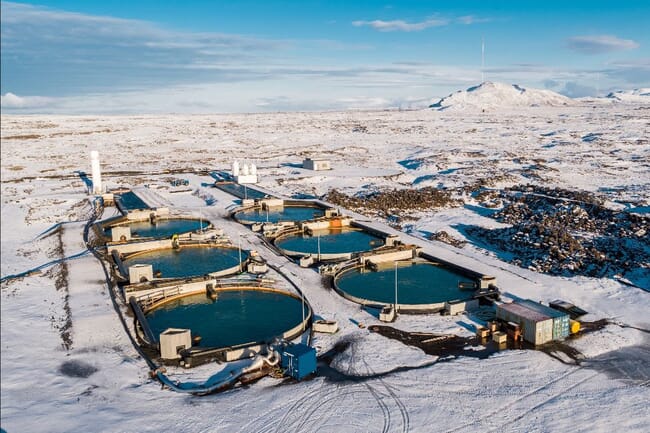
The land-based farm run by Matorka – one of Aqua-Spark's earliest investments – was damaged following several large earthquakes in November © Matorka
Areas of concern
Despite plenty of positives it’s not been plain sailing for all the fund’s portfolio companies – most recently Matorka, the land-based Arctic char producer that was one Aqua-Spark’s earliest investments, sustained damage to its processing unit and one tank at the farm following substantial seismic activity in western Iceland. However, despite the testing conditions, the team have reported that operations are now stable.
“It’s a very unfortunate and unexpected event,” Smit concedes, “but from a more general perspective our portfolio companies have been affected negatively by two things: the first is the fundraising environment, which has not been easy over the past year. In addition, the whole aquaculture space is underinvested from outside investors. That combination makes it tough and if we really want to change the food system and invest in sustainable solutions then more funding is needed in a broad sense.”
Smit is, however, optimistic that this is set to change.
“The positive news is that there’s a lot more consumer awareness around the need to protect ocean health, the solutions for that and the need for traceability. There have been a lot of media publications over the last year that helped both consumers and investors see the need to ensure we come up with sustainable alternatives. But at the same time more capital is needed in the sector as a whole,” she observes.
“While eFishery might seem like a huge overnight success story, having financed it since the beginning it’s not always been a straightforward investment case – it’s taken a lot of hard work to support them in becoming the company they are today,” she adds.
Aqua-Spark has obviously been affected by the recent run of negative global macro-economic events and Smit believes that the VC funding space has been particularly challenging.
“Very small companies are attracting seed funding and once companies are profitable it unlocks all types of capital, but the in-between phase where we like to play, it’s much harder to convince people about the need and the opportunities out there. We’ve looked at venture capital raises over the last 18 months and it’s generally not been a great environment,” Smit notes.
Looking ahead
Given the launch of Aqua-Spark’s Africa fund in 2024, Smit plans to focus strongly on the continent in the coming months.
She will also be looking into which of Aqua-Spark’s 11 impact outcomes most urgently need to be addressed and establishing how best to achieve these.
“Feed, and ensuring that there’s no wild-caught ingredients needed in aquafeeds, will remain an important part of our focus because it’s so related to ocean health. We’ll also be looking more into animal health – it’s a very important one, if you get it right it saves farmers a lot of money and improves productivity in the whole value chain. Another area we’ll be looking at is genetics – it’s not an easy one but can make a huge difference in production and in making sure you get a whole sustainable value chain. And the aquatech side remains vital, especially as a means to support smallholders, unlock more value and have more impact,” Smit concludes.
*Hatch is part of Aqua-Spark’s investment portfolio, but The Fish Site retains editorial independence.


